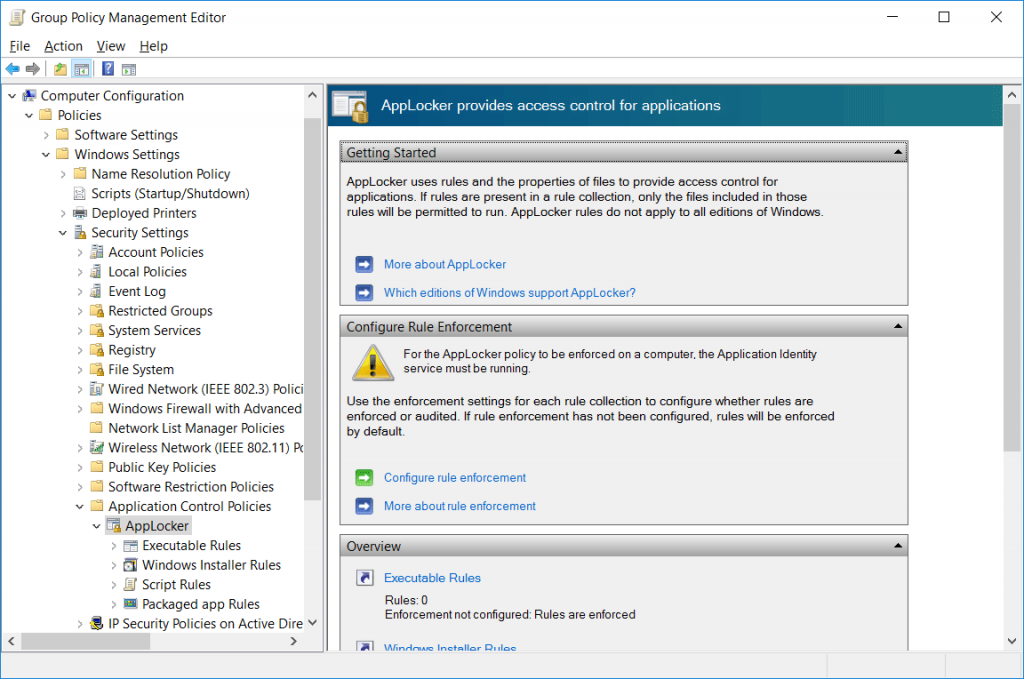

- CONFIGURE EXECUTABLE RULES ENFORCEMENT FOR APPLOCKER HOW TO
- CONFIGURE EXECUTABLE RULES ENFORCEMENT FOR APPLOCKER WINDOWS 10
Select Allow or Deny according to what you want and click Next. Click the Find Now buttonĬ) Select the desired user or group and tap OK. Click the Advanced buttonī) Click the button Find Now. The default setting is EveryoneĪ) Click the button Advanced. The default setting is Everyone for all users and groups. If you want to specify users or groups to enforce this rule, click Select. Right-click or click and hold Executable Rules, click Create New Rule. If this step is not done, AppLocker will block all Microsoft Store apps from running.Ĩ. Expand the currently open AppLocker in the left pane of the window Local Security Policy, click Packaged app Rules, right click or press and hold Packaged app Rules, then choose Create Default Rules. Check the Configured box under Executable rulesĦ. Check box Configured in Executable rules and press OK. Click the Configure rule enforcement linkĥ. Expansion Application Control Policies in the left pane of the window Local Security Policy, click AppLocker and click on the link Configure rule enforcement on the right side. Open Local Security Policy ( secpol.msc).Ĥ. sc config "AppIDSvc" start=auto & net start "AppIDSvc"ģ. AppLocker cannot enforce rules if this service is not running. This command to ensure service Application Identity enabled, set to Automatic and running. Copy and paste the command below into the Command Prompt, and press Enter and close Command Prompt when it ends.
CONFIGURE EXECUTABLE RULES ENFORCEMENT FOR APPLOCKER HOW TO
How to use AppLocker to allow or block executable files from running in Windows 10Ģ.
CONFIGURE EXECUTABLE RULES ENFORCEMENT FOR APPLOCKER WINDOWS 10
com) from running for all or specific users and groups in Windows 10 Enterprise and Windows 10 Education. This guide will show you how to use AppLocker to allow or block specified executable files (.exe and. If you want to block an executable that is allowed by the default rules below, you will need to create a new rule to block (deny) the file against a user or group. The following table lists the default rules available for the enforcement rule collection.Īny executable files that are not allowed by the default rules below are automatically blocked by default unless you create a new rule to allow the file to a single user or group. Because all the default rules for the executable rule collection are based on directory paths, all files in those paths will be allowed. com extensions associated with an application. These include executables, scripts, Windows Installer files, dynamic link libraries (DLLs), Microsoft Store apps, and the installers of these applications.ĪppLocker defines execution rules as any file with. AppLocker helps you to control which apps and files a user can run.


 0 kommentar(er)
0 kommentar(er)
